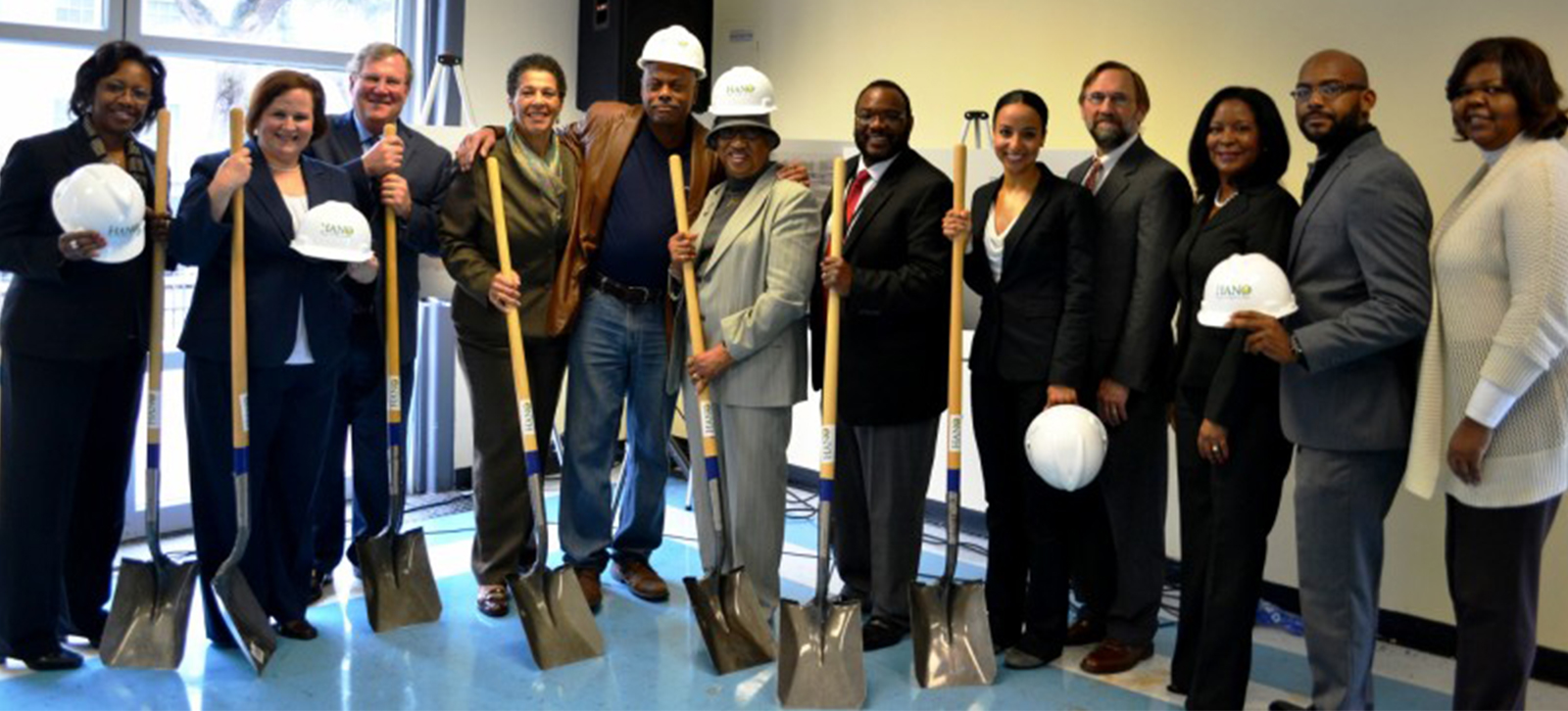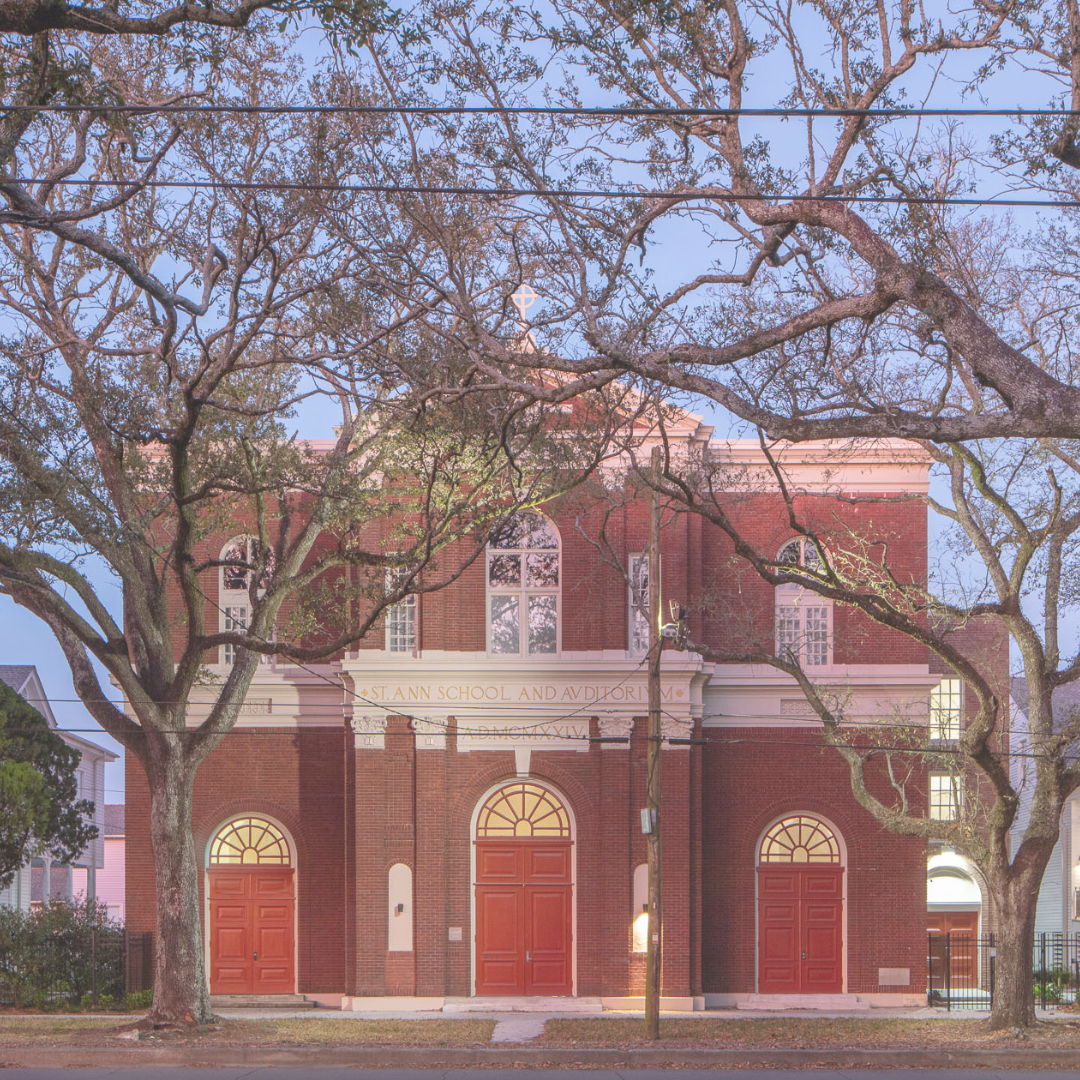

Updated Aug 1, 2025
In April, a DOGE team was assigned to NeighborWorks America, a congressionally chartered nonprofit that funds, trains, supports, and oversees a national network of 245 community-based housing nonprofits. It also lost several board members, as some federal agencies whose leaders compose the board by law failed to send representatives after leadership changes. The board is now back to a bare minimum for quorum as of its June meeting, and NeighborWorks has continued to carry out its work. (Editor’s note: NeighborWorks America provides financial support for some of our work.)
However, uncertainty hangs over the organization. Its appropriated funding, traditionally delivered in full in the spring, has instead since April this year been released by the Office of Management and Budget only a month’s worth at a time. NeighborWorks is sending that funding immediately out to its network members; on August 1 it announced the release of $11.8 million to local organizations in its fifth tranche of grants, making $71.5 million total distributed in 2025.
Source: ShelterForce https://shelterforce.org/2025/07/31/some-neighborworks-members-struggle-under-new-funding-schedule/
Lou Tisler, executive director of the National NeighborWorks Association, which is a separate and independent membership association for NeighborWorks network members, says that the dribbling out of funds is hard on smaller organizations. It makes it difficult for them to budget and adds expenses, whether it’s the interest on a line of credit they need to take out to tide them over, or the opportunity costs of projects being lost. “If you have pre-development costs of $200,000 and you’ve got $100,000, you really can’t move that project without the full amount,” he points out. “They’re still incredibly thankful, appreciative of the funds being available,” he adds. “But it’s a burden.”
[RELATED ARTICLE: Is DOGE Coming After NeighborWorks?]
Deb Elzinga is president and CEO of Community Frameworks, a NeighborWorks member in Spokane, Washington, that develops affordable rental housing and provides homeowner assistance. Elzinga says the interrupted appropriations and resulting partial grants have meant they have had to put some of their important work on pause. “It’s disruptive,” she says.
“The fact that they are doing this makes it seem like that money is at risk every month,” agrees Terri North, president and CEO of Providence Community Housing, a NeighborWorks member in New Orleans. The organization has developed 1,700 units of rental housing, especially for seniors, and 107 homes for low- to moderate-income buyers. It’s also a property manager, continuing to operate about 1,500 of the homes it has developed, as well as managing some for other organizations. That’s a lot of moving parts, and since 2011, Providence has relied on its membership in NeighborWorks to help keep it all moving forward. “The fact that [NeighborWorks has] been allocated a certain amount of money, but they only get it in [dribs] and drabs, is a concern, obviously, for our organization,” says North. She adds that her organization, being large, can weather some disruption, but she’s concerned about the effects on smaller organizations.
Affordable housing needs don’t get put on hold, even when appropriations do, and so, “even in this budget environment, NeighborWorks continues to move forward,” as do its members, Tisler says.
The Role of NeighborWorks
NeighborWorks leverages an impressive $71 for every $1 of federal funds it distributes through its member organizations. “In terms of being a NeighborWorks organization, I would say the biggest thing that I’m really proud of is the collective impact that we have as a network,” says Elzinga. “Our network owns almost 212,000 rental homes, and we, last year, created over 16,000 homeowners. That’s a huge impact. To be a part of that is really inspiring, and it always is really motivating.”
But what exactly does NeighborWorks do for its network members, and through them for the communities they work in?
The most obvious is the provision of funds. NeighborWorks Flexible Impact grants can be used for whatever local organizations need, whether it’s general operating support to run the organization itself or filling gaps in the financing of affordable housing development projects. “It’s good because it’s flexible, and so it can be first in” to a project, says Tisler, or “last in to get across the finish line.” (NeighborWorks Capital also provides loans tailored to member organizations for their development projects.)
NeighborWorks organizations emphasize that this flexibility is a large part of why NeighborWorks is able to leverage its spending so impressively. “Having that flexibility allows us that local control to really put that money where it can do the most good,” says Elzinga. “Having that first money in is what often creates the domino effect . . . That really instills confidence with the organization, and instills confidence about the project.”
“A lot of what we do there, the funding is very restrictive,” says North, whose organization was founded after Hurricane Katrina and develops and manages rental homes and also develops affordable homes for sale. “Most of what we deal with has to be very specifically spent and complied with in certain ways. The NeighborWorks dollars are federal dollars, but they are given to us in a very flexible way.” Providence often sets some of this money aside for use in plugging the inevitable gaps that can arise and threaten an affordable housing deal. Also, she notes, the grants are consistent, which means “during the lean years . . . it allows us to continue to operate and stay stable and sustainable while we work on the next step.”
But flexible is not the same as a lack of accountability. Every three years, NeighborWorks members go through a rigorous performance review, which many members say provides valuable insights for their organizations. “It’s sometimes a little uncomfortable for folks,” says North. “I know that it is for us as well, but I welcome it, because every time they have come, they have helped us think through something we might have missed. And so it really helped make us a better and stronger organization.”
Michelle Merced, CEO and president of Neighborhood Housing Services of Southern Nevada, also appreciates the guidance she gets from the reviews. “They really look at every line of business, they look at revenue, they look at expenses, they look and they give that feedback,” she says.
Guidance, support, and feedback come in other formats from NeighborWorks as well. Their NeighborWorks Training Institutes are available to all, not just to network members. The institutes are the primary source for training specific to the affordable housing and community development fields, which are, as North says, “not the most widely known type of industry.” She says that makes it particularly helpful to have those trainings to send employees to. In fact one such training institute in the late 1990s inspired Elzinga to found a NeighborWorks organization in her then–home state of Illinois.
NeighborWorks also steps in to support organizations directly when specific issues come up. “Every organization has its own relationship manager, and we can tap into that person for ideas and strategies,” says Elzinga. “They’re really on the front lines of helping us to see what kinds of things we should be working on. They really stay current on trends, and they have their pulse on what’s happening in your region.”
“You go to them when you’re really struggling with something, and they will come back with a consultant or somebody to help you through these things, [which] is huge,” says North. “Nonprofits struggle with having to do a whole lot with very little. And so your capacity gets limited, and they can bring that to bear when you need it, so that you can remain a sustainable organization.”
Sometimes that help is incredibly concrete: NeighborWorks helped the four founders of Merced’s organization get started in the 1990s and figure out how to make a functional organization out of their desire to improve their community. And NeighborWorks stuck around. In 2017, some transitional housing owned by NHS of Las Vegas experienced a fire. Merced was worried about recovery, especially because transitional housing can be controversial, but “NeighborWorks came to the rescue,” she recounts, and helped the organization rebuild.
And it’s not just NeighborWorks itself that is useful, but also the network that organization maintains. “Because of the network, I have, basically, 240 other colleagues that I can tap into for ideas and strategy and ‘Hey, I bet you have this problem. Could you help me solve it?’” says Elzinga. “And that happens all the time.”
After Hurricane Harvey, Merced’s organization, which is based in Las Vegas, worked with others to ship a Houston-based NeighborWorks member all the furniture being discarded by a casino remodel, so it could be passed on to people who had been flooded out by the hurricane. “It’s the power of that network; we’re all on the same page, singing that tune, that it’s about our community,” says Merced.
Uncertain Future
While this year NeighborWorks is more or less intact, the future is uncertain. The president’s budget proposal for FY 2026 zeroes out the congressional appropriation for NeighborWorks. This was also proposed by the first Trump administration, but Congress appropriated the full amount instead. This July, the House of Representatives Transportation, Housing, and Urban Development (THUD) committee passed an appropriations bill that included $100 million for NeighborWorks, and the Senate THUD committee has passed one that contains $158 million, which would be level funding from the previous two fiscal years. But the budget process is still in early stages.
Tisler says network members are also concerned about OMB director Russell Vought’s discussion of using “pocket rescissions,” which can happen when rescissions are proposed to Congress near the end of the fiscal year. The funds in question are withheld while Congress considers, but if the fiscal year ends with nothing decided, the withheld funds are considered “expired” and not disbursed. That could amount to a backdoor cut of millions of dollars even before next year’s budget is decided upon, something that would be felt on the local level as less available housing, less support for homebuyers and homeowners, loss of deals and jobs, and possibly a loss of entire community institutions.
“If it wasn’t for the power of that NeighborWorks network,” says Merced, “We couldn’t do the good work that we do.”
© 2026 Providence Community Housing | 2117 Ursulines Avenue, New Orleans, LA 70116